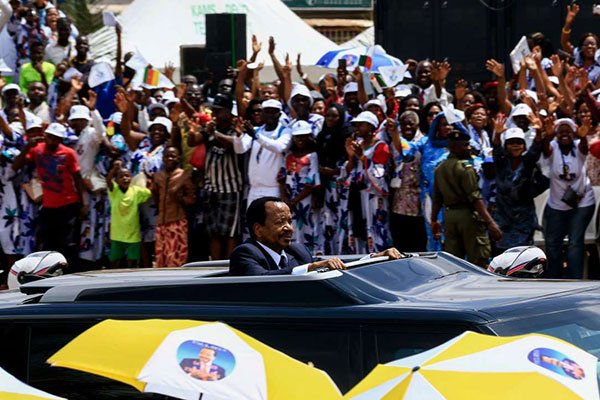
Cameroon withdraws contested language law

Cameroon has withdrawn a controversial bill that sought to promote the use of French and English languages in official corridors.
The withdrawal just before Parliament adopted came after lawyers protested on the streets that the legislation could lead to more French-speaking judges being assigned to courts in the English-speaking North West and South West of the country.
Cameroon is deeply divided with the Anglophone region agitating for secession into a republic of Ambazonia on the grounds that political leadership and allocation of resources is skewed in favour of the Francophone parts of the country.
The agitation started in 2017 spawning a crisis that has to date left 3,000 people dead, displaced half a million internally and forced 40,000 others into refuge in Nigeria
President Paul Biya called a Major National Dialogue in October to seek solutions to the crisis but the talks were undermined by absence of rebel leaders and claims that government officials handpicked delegates.
Nevertheless, President Biya also extended a gesture of reconciliation through release of more than 330 people held over political charges including opposition leader Maurice Kamto.
The international community saw this as a promising foundation and have been urging for more talks over the crisis with the AU, the Commonwealth and La Francophone political groupings the latest to offer support.
The sticking point in the Bilingual Bill—which is part of a programme of cultural integration—provided for use of either English or French in ordinary and special courts during proceedings as well as rulings.
The use of either rather than both is the sticking point.
“If the bill is adopted, where is the guarantee that the French majority will use English in French speaking towns like Dschang, Yagoua and Monatele with relative ease just as officials have been doing in West Cameroon?,” posed Barrister Oliver Ngwang Shey.
“Yaounde does not have the zeal to foster or maintain the Anglophone culture as a minority,” said Shey, a member of the Cameroon Bar Association.
The UN says the conflict has created a fast-growing humanitarian emergency now affecting nearly two million people, a “15-fold increase since 2017.”






